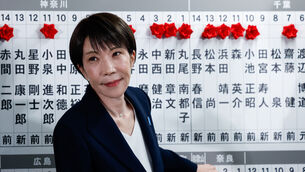Cuba approves free-market reforms
Communist Party delegates gave their blessing to a sweeping slate of economic changes designed to breathe life and a bit of free-market spirit into Cuba's moribund economy, and also voted in a new party leadership at a historic summit.
State television announced the unanimous approval of about 300 economic proposals in a full session of the Party Congress, but it did not give details.














